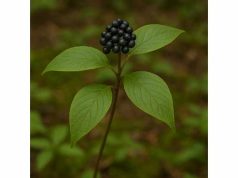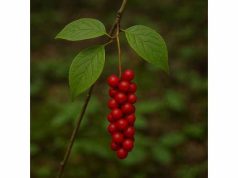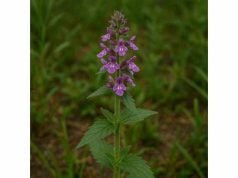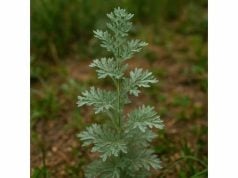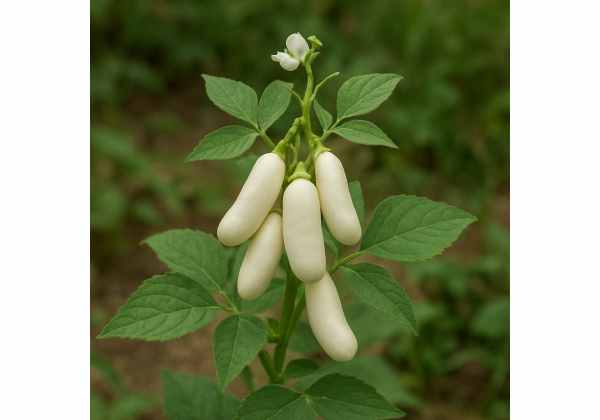
White kidney bean, widely recognized for its role in balanced nutrition and natural wellness, offers a unique combination of health benefits, active compounds, and valuable medicinal properties. This versatile legume is prized for its ability to support healthy weight management, regulate blood sugar, and contribute to heart health. Rich in protein, fiber, resistant starch, and essential micronutrients, white kidney bean’s active ingredients—such as phaseolamin—play a key role in blocking carbohydrate absorption and promoting digestive wellness. Whether enjoyed as a wholesome food or harnessed in supplements, its uses span culinary, metabolic, and holistic health applications.
Table of Contents
- Comprehensive Botanical Overview and Identification
- Chemical Profile and Key Active Compounds
- Unique Health Advantages and Core Properties
- Practical Applications, Culinary Uses, and Safety Guidelines
- Scientific Insights and Noteworthy Research
- FAQ
Comprehensive Botanical Overview and Identification
White kidney bean (Phaseolus vulgaris), also known as cannellini bean, is a legume cultivated across the globe for its nutritional and culinary value. Belonging to the Fabaceae family, this plant displays the classic features of true beans—erect or climbing vines, trifoliate leaves, and elongated seed pods.
Botanical Features:
- Leaves: Compound leaves with three oval or lance-shaped leaflets; dark green with a slightly glossy finish.
- Flowers: Small, white to pale pink blooms clustered on slender stalks, characteristic of most common beans.
- Pods: Straight, narrow, and up to 15 cm long, maturing to encase large, white, kidney-shaped seeds.
- Seeds: The beans themselves are plump, white, and curved like a kidney, with a creamy texture when cooked.
Growth Conditions:
- Soil: Thrives in well-drained, fertile soils rich in organic matter.
- Sunlight: Requires full sun for robust growth and high yields.
- Water: Prefers consistent moisture but is sensitive to waterlogging.
- Climate: Best grown in temperate to warm climates; susceptible to frost.
Natural Habitat and Cultivation:
- Native to Central and South America but now widely cultivated in the Americas, Europe, Africa, and Asia.
- Commonly grown in vegetable gardens, large-scale farms, and even as a rotational crop to enrich soil nitrogen.
Distinctive Traits:
- The white kidney bean’s smooth, kidney-shaped seeds and mild flavor distinguish it from other beans.
- It is a staple in Italian cuisine, especially in soups, salads, and stews.
Understanding the plant’s structure and growing requirements ensures successful identification and cultivation, whether for food or natural health use.
Chemical Profile and Key Active Compounds
The health-enhancing qualities of white kidney bean stem from its diverse spectrum of nutrients and unique phytochemicals. Below, we examine its primary active compounds and their health-related functions:
- Phaseolamin
- An alpha-amylase inhibitor unique to white kidney beans.
- Reduces carbohydrate absorption by inhibiting starch breakdown, supporting healthy blood sugar levels and weight management.
- Dietary Fiber
- Composed of both soluble and insoluble fiber.
- Supports digestive health, regularity, and may aid in cholesterol reduction.
- Resistant Starch
- Acts as a prebiotic, nourishing beneficial gut bacteria and promoting colon health.
- Helps moderate blood sugar spikes and supports satiety.
- Protein
- Contains all essential amino acids, making it a valuable plant-based protein source.
- Supports muscle maintenance and metabolic health.
- Polyphenols
- Includes flavonoids, tannins, and other antioxidants.
- Neutralizes free radicals and protects cells from oxidative damage.
- Vitamins and Minerals
- Rich in folate, iron, magnesium, potassium, zinc, and B vitamins.
- Supports cardiovascular, metabolic, and immune functions.
- Saponins and Phytates
- Contribute to cholesterol-lowering effects and overall heart health.
- Some anti-nutrient effects, but also provide antioxidant benefits when consumed as part of a balanced diet.
This robust array of compounds underlies both the nutritional and medicinal properties of white kidney bean, helping to explain its broad application in health and wellness.
Unique Health Advantages and Core Properties
White kidney bean delivers a host of health benefits that make it more than just a dietary staple. Let’s explore its primary advantages and the core properties that set it apart in natural medicine and modern nutrition.
Weight Management Support:
The phaseolamin content helps block the digestion of starch, reducing calorie absorption from carbohydrates. This makes white kidney bean extract a popular ingredient in natural weight management supplements and dietary programs.
Blood Sugar Regulation:
By slowing carbohydrate absorption and providing resistant starch, white kidney beans help moderate post-meal blood sugar spikes and improve insulin sensitivity. This is particularly beneficial for those managing prediabetes or type 2 diabetes.
Digestive and Gut Health:
High fiber and resistant starch content support regular bowel movements, foster healthy gut flora, and may help prevent constipation and digestive discomfort.
Cardiovascular Wellness:
With its blend of fiber, antioxidants, potassium, and magnesium, white kidney bean aids in lowering LDL cholesterol, supporting healthy blood pressure, and reducing the risk of cardiovascular disease.
Protein-Rich Nutrition:
An excellent source of plant-based protein, white kidney bean is ideal for vegetarians, vegans, and anyone seeking alternatives to animal proteins for muscle and tissue repair.
Detoxification and Antioxidant Effects:
Antioxidant polyphenols help neutralize toxins and oxidative stress, promoting cellular health and slowing the aging process.
Satiety and Appetite Control:
The combination of protein, fiber, and resistant starch increases satiety, curbing appetite and supporting sustainable weight loss goals.
Additional Key Benefits:
- Supports healthy metabolic function
- Enhances immune system resilience
- May protect against certain cancers (due to antioxidant and fiber content)
Collectively, these qualities make white kidney bean a powerhouse for holistic well-being.
Practical Applications, Culinary Uses, and Safety Guidelines
White kidney bean’s uses extend far beyond traditional cuisine. Let’s review its practical applications, optimal preparation, and essential safety information:
Culinary Uses:
- Soups & Stews: A staple in Italian minestrone, Mediterranean stews, and hearty chili recipes.
- Salads: Adds substance and texture to mixed bean salads or cold dishes.
- Purees & Spreads: Blended into creamy dips, hummus alternatives, and spreads for sandwiches.
- Baking: Incorporated into healthy baked goods, such as gluten-free breads and brownies, for added protein and fiber.
- Whole Bean Dishes: Enjoyed hot or cold, paired with herbs, olive oil, and vegetables.
Supplements and Extracts:
- Phaseolamin Extract: Marketed for carbohydrate-blocking and weight management.
- Protein Powders: Plant-based protein blends often include white kidney bean for amino acid balance.
- Fiber Supplements: Bean-derived fiber supports digestive and metabolic health.
Preparation Tips:
- Soaking: Dry beans should be soaked 8–12 hours before cooking to reduce anti-nutrients and enhance digestibility.
- Cooking: Boil vigorously for at least 10 minutes, then simmer until soft. Raw or undercooked beans are toxic due to phytohemagglutinin content.
- Canned Beans: Convenient and ready to eat; rinse before use to reduce sodium.
Recommended Dosage:
- Culinary: ½–1 cup cooked beans per serving.
- Supplemental Extracts: Dosage varies by product—follow manufacturer’s instructions.
Safety Considerations:
- Raw Bean Toxicity: Always cook thoroughly. Raw or improperly cooked beans can cause severe gastrointestinal distress.
- Allergic Reactions: Rare, but possible—monitor for symptoms if new to legumes.
- Medication Interactions: Those on blood thinners, diabetes, or blood pressure medications should consult a healthcare provider before high-dose supplementation.
- Digestive Discomfort: Gradually increase intake to reduce gas or bloating; soaking and thorough cooking help minimize these effects.
By following these guidelines, you can safely enjoy the nutritional and medicinal uses of white kidney bean in daily life.
Scientific Insights and Noteworthy Research
Ongoing scientific research confirms and expands our understanding of white kidney bean’s multifaceted benefits. Here are several important studies and findings:
- 2023, “Efficacy of Phaseolamin in Weight Reduction,” Journal of Nutrition and Metabolism
- This clinical trial showed that participants using phaseolamin extract experienced greater reductions in body weight and waist circumference compared to placebo.
- 2022, “White Kidney Bean Extract and Glycemic Control,” Diabetes Care Review
- Researchers found that white kidney bean supplementation significantly improved blood sugar management in adults with mild insulin resistance.
- 2021, “Dietary Fiber from Beans and Cardiovascular Risk,” Nutrition & Heart Health
- Analysis revealed that regular consumption of white kidney beans lowered LDL cholesterol and supported cardiovascular function.
- 2020, “Impact of Resistant Starch on Gut Microbiota,” Gut Wellness Journal
- This study found that resistant starch from white kidney beans fostered beneficial gut bacteria and improved markers of colon health.
- 2019, “Safety Assessment of Bean-Derived Supplements,” Food Science & Safety Insights
- Found that white kidney bean supplements were well-tolerated in healthy adults when taken as directed, with minor digestive side effects reported in some individuals.
- 2018, “Antioxidant Properties of Cannellini Beans,” Plant-Based Nutrition Review
- Highlighted the potent antioxidant effects of polyphenols and their role in cellular protection and metabolic health.
Collectively, these studies reinforce the broad potential of white kidney bean in supporting health, wellness, and disease prevention.
FAQ
What are the main benefits of white kidney bean?
White kidney bean benefits include weight management, blood sugar regulation, digestive support, heart health, and antioxidant effects. Its active compounds help block carb absorption and promote overall metabolic balance.
Is white kidney bean safe to eat daily?
Yes, white kidney bean is safe to consume daily when fully cooked. However, raw or undercooked beans are toxic. For supplements, follow product directions and consult a healthcare provider if you have underlying health conditions.
How does white kidney bean support weight loss?
White kidney bean contains phaseolamin, which blocks the enzyme alpha-amylase. This reduces starch absorption, curbs calorie intake from carbs, and helps with appetite control—making it useful in weight management programs.
What active ingredients are found in white kidney bean?
Key active compounds include phaseolamin, dietary fiber, resistant starch, plant protein, polyphenols, saponins, and minerals like magnesium and potassium, all contributing to its health-promoting properties.
Can white kidney bean help regulate blood sugar?
Yes, by slowing starch digestion and providing resistant starch, white kidney bean helps moderate blood sugar spikes and may benefit individuals with prediabetes or diabetes.
Are there any risks or side effects with white kidney bean?
The main risks include toxicity from eating raw or undercooked beans and mild digestive discomfort. Rarely, allergic reactions occur. Proper cooking and gradual dietary introduction help minimize any side effects.
Disclaimer:
The content provided in this article is intended for educational purposes only and should not be taken as a substitute for professional medical advice, diagnosis, or treatment. Always consult your healthcare provider before making dietary or supplement changes, especially if you have underlying health conditions.
If you found this article helpful, please share it with your friends and family on Facebook, X (formerly Twitter), or your favorite platform! Your support helps us continue to deliver quality, evidence-based health content. Don’t forget to follow us on social media for more insightful articles and healthy living tips. Thank you for supporting our community!


